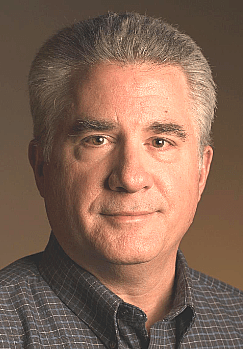O words, how I love thee — when I’m not hating thee.
What other product of the mind leads us to truth with one hand and deceives us with the other? What other human invention enlightens us and manipulates us, sometimes simultaneously?
Jesus is the Word of God incarnate. But words (small w) are another matter. The tongue, James the apostle warns, sets the world on fire: “No man can tame the tongue. It is a restless evil, full of deadly poison.”

Erich Bridges
At least poison is compelling and dangerous. Cliches are just irritating. That’s why grumpy editors look forward to the annual list of trite words and phrases deserving banishment, issued by Lake Superior State University. I’m sure BNG editor Mark Wingfield isn’t as grumpy as I am, but he couldn’t resist writing a column this week about the latest list.
Mark is one of my favorite writers because he’s a wonderful stylist, has a huge heart and is wrong at least half the time (still better than my average) — which is why I enjoy contradicting him.
I’ll come back to my disagreement with Mark in a moment. But first, here are this year’s 10 words/phrases most deserving of execution, according to Lake Superior State:
- GOAT (acronym for Greatest Of All Time)
- Inflection point
- Quiet quitting
- Gaslighting
- Moving forward
- Amazing
- Does that make sense?
- Irregardless
- Absolutely
- It is what it is.
If you have even a passing affection for good English, written or spoken, smoke is coming out of your ears as you read these abominable offenders against clarity of expression. Sure, the annual Lake Superior exercise is fun and tongue-in-cheek, but it serves a greater purpose: defending English against the dullards and scoundrels who seek to destroy it.
“LSSU has compiled an annual Banished Words List since 1976 … to uphold, protect and support excellence in language by encouraging avoidance of words and terms that are overworked, redundant, oxymoronic, clichéd, illogical, nonsensical — and otherwise ineffective, baffling or irritating,” declares the press release accompanying the latest compilation.
As a word lover, I cannot imagine a more noble enterprise in the secular realm.
Words have consequences. We’ve been reminded of this yet again as misinformation and disinformation have run rampant through our culture and politics in recent years. People who believe lies about COVID vaccines die. People who believe lies about elections undermine our democracy.
George Orwell, the great 20th century prophet of tyranny, said this in his immortal 1946 essay, “Politics and the English Language”:
Now, it is clear that the decline of a language must ultimately have political and economic causes: it is not due simply to the bad influence of this or that individual writer. But an effect can become a cause, reinforcing the original cause and producing the same effect in an intensified form, and so on indefinitely. A man may take to drink because he feels himself to be a failure, and then fail all the more completely because he drinks. It is rather the same thing that is happening to the English language. It becomes ugly and inaccurate because our thoughts are foolish, but the slovenliness of our language makes it easier for us to have foolish thoughts. The point is that the process is reversible. Modern English, especially written English, is full of bad habits which spread by imitation and which can be avoided if one is willing to take the necessary trouble. If one gets rid of these habits one can think more clearly, and to think clearly is a necessary first step toward political regeneration: so that the fight against bad English is not frivolous and is not the exclusive concern of professional writers.
Can I get an amen?
Here are a few of my words and phrases in need of permanent banishment:
Iconic — Latest number of Google results: 1.1 billion. It’s the most overused and abused adjective in English. If everything is “iconic,” nothing is “iconic.” Seized upon by lazy journalists and headline writers in search of a short alternative to “great” or “remarkable,” it has metastasized, like a disease, into general usage.
Arguably — Another journalistic weasel word. It’s a semi-sophisticated synonym for “perhaps” or “maybe.” If something is “arguable,” make the argument. Don’t bail out with a lazy modifier.
The F-word — One of George Carlin’s infamous “seven words you can never say on television,” circa 1972. How times have changed. It’s probably the most common word on cable/streaming TV, movies and comedy. Hack script writers seem to have software to insert it automatically into every other sentence. Apart from the morality of using such a profanity so frequently, what does it say about the debased state of our culture?
Queer — This singularly ugly word, once one of the ugliest epithets you could hurl at a homosexual person, has now been “reclaimed” by the LBGTQ (that last letter stands for “queer”) community to refer to those “who identify as queer; the terms lesbian, gay and bisexual are perceived to be too limiting and/or fraught with cultural connotations they feel do not apply to them,” according to the Gay and Lesbian Alliance Against Defamation Media Reference Guide. This reminds me of the N-word, which has now been “reclaimed” by Black rappers and comedians to refer to African Americans in countless songs and routines. What positive purpose can this serve? None.
White evangelicals — Stop. Just stop. This phrase, which is so misused that it now has no meaning, must be retired. Yes, white people self-identifying as “evangelicals” have overwhelmingly supported the awful Trumpist movement, and those who are actual members of evangelical churches should be held accountable for their surrender to Trump’s message of hate and fear. But many supposed “white evangelicals” don’t even attend church. They are part of the larger social movements of white populism and nationalism; they should not be confused with the longstanding evangelical movement, which contains multitudes of expressions and ethnicities. They overlap, yes. They are not the same. Efforts to portray them as such are dishonest at best and slanderous at worst.
Pronouns — This brings me back to Mark Wingfield, who says this in his mostly thoughtful column on words to use and avoid: “Word choices matter in our communication. And it doesn’t cost us anything to be kind. That’s why I just don’t understand why some folks are so resistant to addressing their students, customers, friends and family members with their preferred pronouns. That’s the most basic change we all could make in our language this year. Just respect everyone by addressing them as they see themselves. That doesn’t make you ‘woke.’ It makes you kind.”
I beg to disagree. Are you “unkind” if you decline to refer to me as “your majesty,” even if I insist on it? It makes me neither unkind nor transphobic to decline to refer to an individual person as “they,” which defies reality, biology and common sense — not to mention basic grammar. But such a refusal can get you fired from any number of jobs in government, education and even church work these days. I’m retired, so there’s no one who can fire me. But I feel for those who face “cancellation,” unemployment or worse for taking a stand.
Words. They carry truth, lies and everything in between. Use them carefully.
Erich Bridges, a Baptist journalist for more than 40 years, retired in 2016 as global correspondent for the Southern Baptist Convention’s International Mission Board. He lives in Richmond, Va.
Related articles:
Some words I’m working to adjust in my vocabulary this year | Opinion by Mark Wingfield
Words matter, even when talking about those you hope to empower


